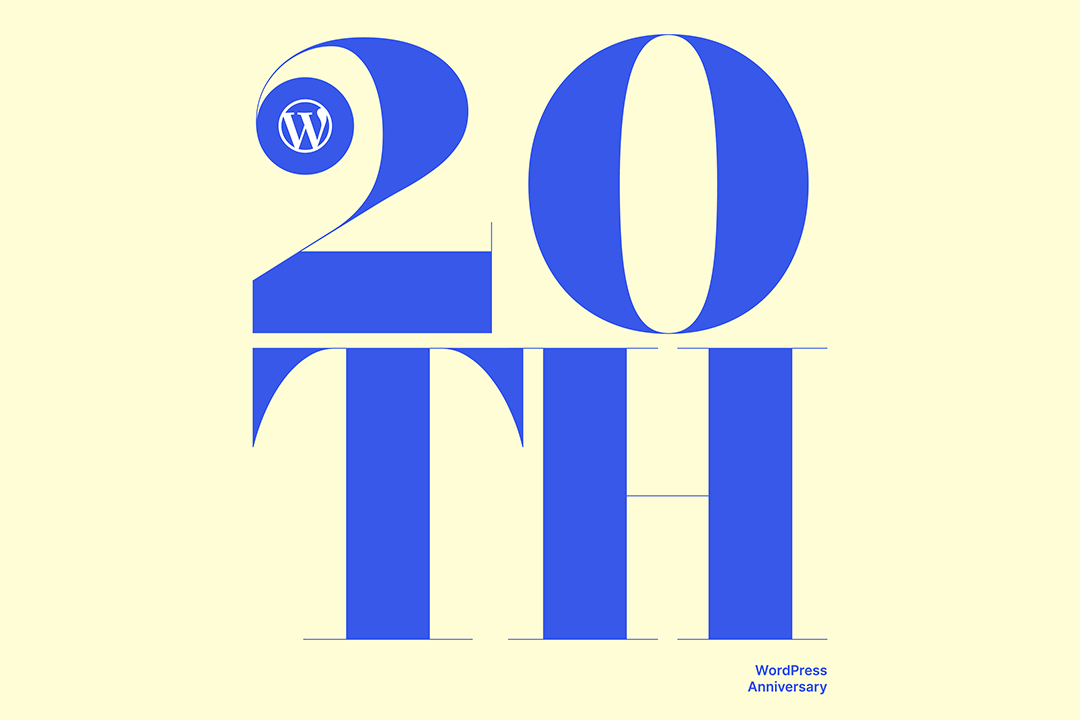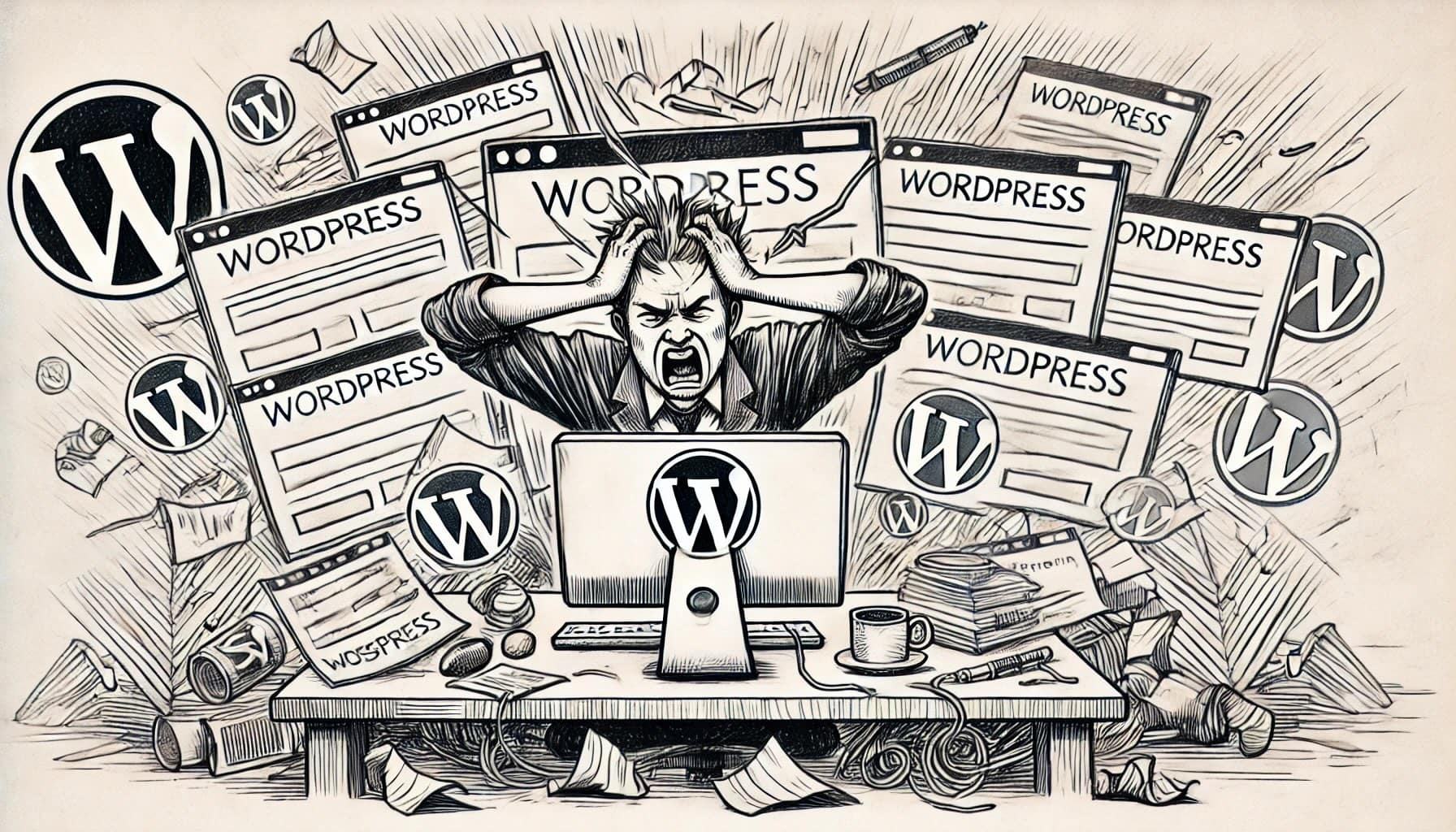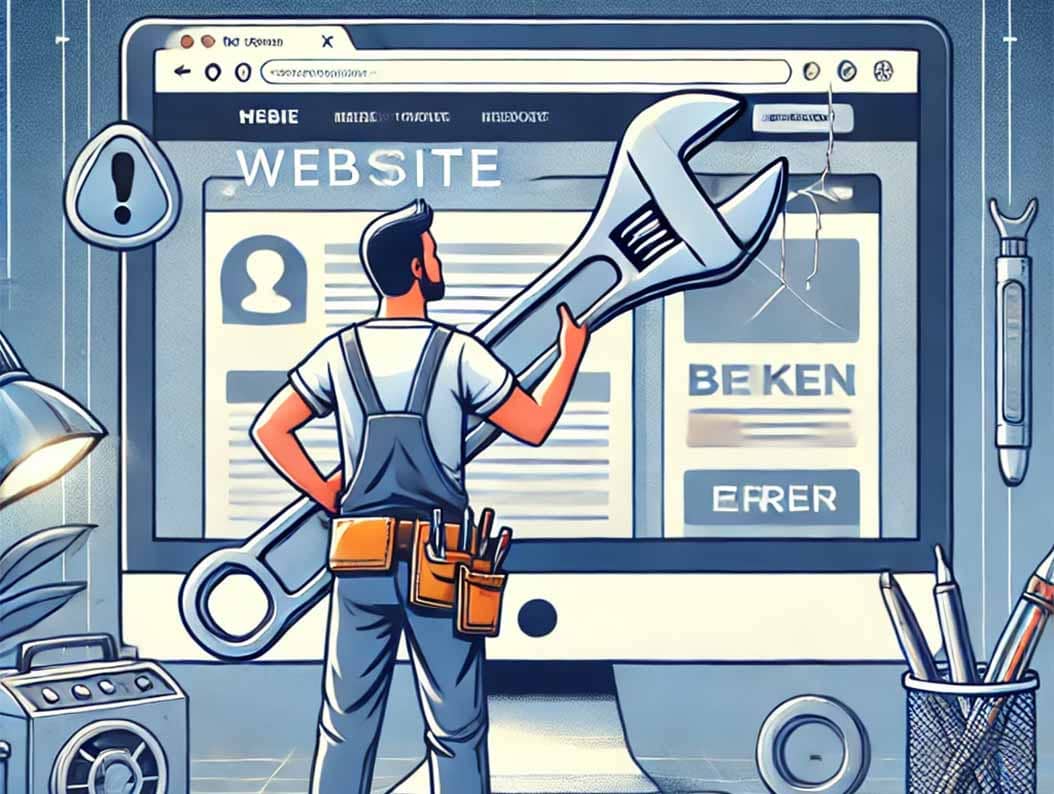On May 27, 2023, WordPress will celebrate its 20th birthday. It’s hard to fathom that the software has been around for so long. Yet some of us may struggle to remember what the web was like without it.
Just think of the designers, developers, and users that have come along during these past two decades. A whole generation has had easy access to content management and nearly-endless customization. Lucky them!
As a more experienced (ahem, old) freelancer, I can recall the challenge of building advanced websites pre-WordPress. Thus, I believe the software has been transformative. It has impacted virtually every aspect of a web designer’s job.
To celebrate this incredible milestone, let’s take a look at what WordPress means to freelancers. We’ll explore how its features and philosophy have empowered web professionals the world over.
A Reliable Foundation for Any Project
A typical WordPress project starts like this:
- Install WordPress.
- Add a theme and any necessary plugins.
- Optionally add custom code as needed.
- Add content.
- Launch!
There’s more to it – but you get the idea. The amazing part of this process is that it doesn’t matter what type of website you are building. WordPress and its ecosystem make it possible.
This wasn’t always the case. Previously, content management systems (CMS) had been either built for niche usage or were severely limited in capability.
Themes existed for some systems, but nowhere near the breadth of what we see today. And the same goes for plugins.
For freelancers, this often meant scouring the web for a suitable solution. If you were a particularly gifted coder, you could build a tool from scratch. But either way, there were obstacles at every turn.
WordPress brought a new level of flexibility to the masses. We may spend time picking out the perfect plugins. But the foundations of what we need are already there.
This doesn’t mean WordPress is the perfect fit for every project. But we can be confident that what we want to build is at least possible. That’s a big deal.
Plenty of Opportunities for Monetization
When you think about it, the concept behind WordPress is revolutionary. It’s free, open-source software that can be used for any purpose.
To put this into perspective: there’s no separate license for commercial use. You don’t need to buy anything. You don’t even have to send co-founders Mike Little or Matt Mullenweg a “thank you” note.
When I first started using WordPress, I was taken aback by this ethos. I was even a bit suspicious of it. Surely, they would pull the rug out from under us at some point? The software will inevitably cost money, right?
Well, that hasn’t happened. Quite the opposite. As people around the world have discovered, WordPress is a vehicle for making money.
Freelancers can use it to build websites for clients – and charge whatever the market will allow. Developers can sell their creations as well. The past 20 years have seen the rise of a strong commercial plugin and theme market. And web hosts have tailored their services around it.
This also means that starting a freelance web design business is incredibly affordable. Anyone willing to learn WordPress can begin serving clients with minimal (or even zero) monetary investment.
It provides us with the opportunity to start small and evolve as needs change. How many other industries can say that?
Advanced Features That Are Within Everyone’s Reach
WordPress helped to resurrect my career. I began using it regularly around 2010. And I was in a major rut at the time.
My specialty had been hand-coded HTML and CSS. I still consider them essential skills. But I was limited in the type of websites I could build. Implementing advanced features seemed impossible.
I wasn’t sure where my business was going. Then I started experimenting with WordPress. In a way, it was like rediscovering my passion for web design.
The software and its ecosystem allowed me to expand my capabilities. Complex functionality was no longer a pipe dream. I could enlist plugins like WooCommerce, Gravity Forms, and Advanced Custom Fields to help me build bigger and better.
Suddenly, I didn’t need to be a senior-level PHP or JavaScript developer. And I didn’t need to turn down projects that seemed too dense. Plugins provided the main features I needed. From there, I could use the skills I had to add further customization.
And my skill level also increased. Diving into more advanced projects made me curious. They put me on a path of learning that I still enjoy to this day. WordPress helped to make it possible.
Part of WordPress’ mission is to democratize publishing. But one can argue that it has done the same with design and development.
A Community To Share Knowledge and Kinship
As software, WordPress is wonderful. But the community it inspired is even more amazing. It’s something each of us benefit from.
For freelancers, the WordPress community has been an invaluable resource. It has provided opportunities to connect, share, and grow.
That’s because community members are all-too-happy to share what they’ve learned. Whether it’s a handy code snippet or business advice, there is so much knowledge out there.
At our best, we genuinely enjoy lifting each other up. That’s what makes events like WordCamps so powerful. But it’s also something we see every day on social media and other platforms.
Freelancing is often about individuality. We run our businesses in a way that best suits us. But the WordPress community helps to bring us together. Regardless of background, identity, or geography.
For all of its faults, it’s also worth remembering the good that this community has done. I think there are people from all corners of the globe that would agree.
For Many Freelancers, WordPress Is a Lifeline
I don’t have the statistics in front of me. Perhaps they don’t exist. But it’s safe to say that WordPress has had a major impact on freelancers.
And 20 years has been a good long run. That’s especially relevant in tech, where big ideas come and go all the time.
Thankfully, WordPress has become something freelancers can rely on. That says a lot about the software – and even more about the people behind the project. Those that contribute in ways both official and unofficial.
Milestones are a great time to look back at what was. But it’s also an important reminder to never take what we have for granted.
What WordPress has done for freelancers, and countless others, is worth celebrating. Let’s hope for another 20 years and beyond.
Join The Newsletter
Get your favorite 5 minutes of WordPress news for busy professionals every week — 100% Free! Join the WP Minute Newsletter below 👇









